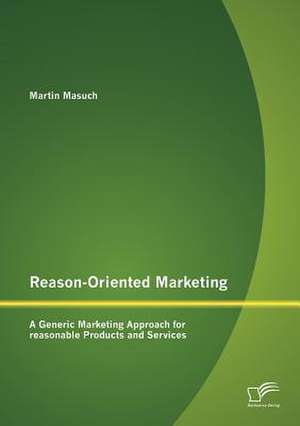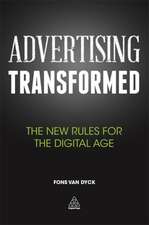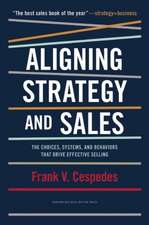Reason-Oriented Marketing: A Generic Marketing Approach for Reasonable Products and Services
Autor Martin Masuchen Limba Engleză Paperback – 30 iun 2012
Preț: 257.40 lei
Nou
Puncte Express: 386
Preț estimativ în valută:
49.26€ • 51.14$ • 41.07£
49.26€ • 51.14$ • 41.07£
Carte disponibilă
Livrare economică 01-15 martie
Preluare comenzi: 021 569.72.76
Specificații
ISBN-13: 9783842882973
ISBN-10: 3842882971
Pagini: 80
Dimensiuni: 148 x 210 x 4 mm
Greutate: 0.1 kg
Editura: Diplomica Verlag GmbH
ISBN-10: 3842882971
Pagini: 80
Dimensiuni: 148 x 210 x 4 mm
Greutate: 0.1 kg
Editura: Diplomica Verlag GmbH
Notă biografică
Martin Masuch, born in 1969 in Germany, completed a degree course in Computer Science at the University of Applied Sciences in Rosenheim and finished a master's degree programme in Business Administration at the AKAD University of Applied Sciences in Stuttgart. He is working as an IT consultant at Capgemini in Munich. The current book is based on the author's research for his master thesis, which he completed successfully in 2011 to receive the degree of Master of Arts in business administration, specialized in marketing management. The author combines the strategies, concepts, and methods of modern marketing management with philosophical aspects of economic ethics to develop a generic, pattern-based approach for the design of reasonable marketing strategies and concepts.












